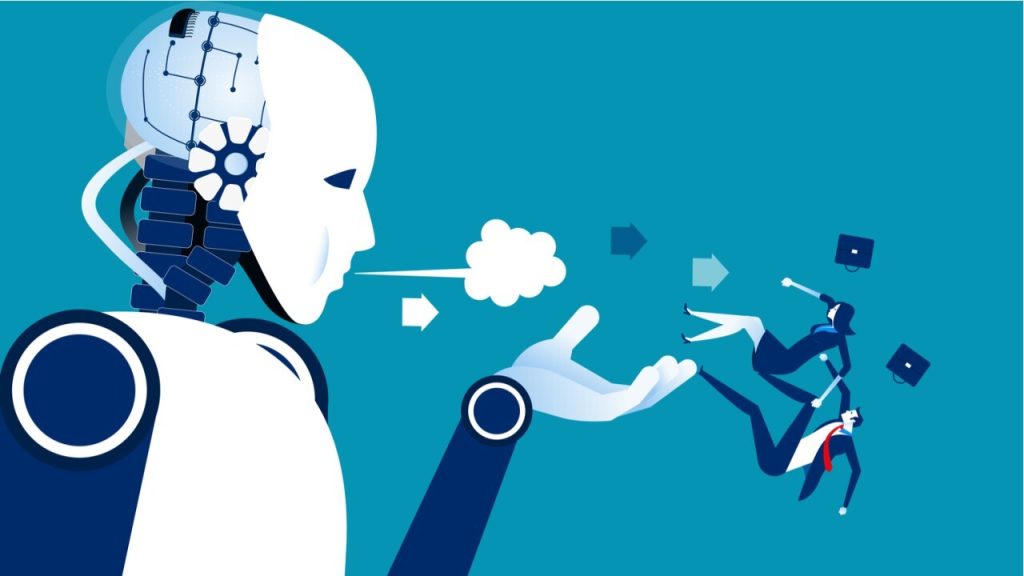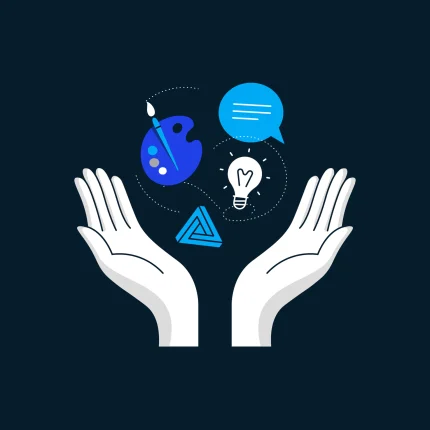Introduction
Imagine spending over 4 years and $50k+ for a computer science degree just to question yourself at the end “Will AI take over computer science jobs?” While this question might be true to a certain extent, it is very much false. Many upcoming college freshmen are wondering “Is a computer science degree really worth it? Will AI take over computer science jobs and leave us homeless with thousands of dollars in college debt?” The answer to these questions is not as straightforward-it can be both yes and no. In this blog, we will delve into the complex relationship between AI and the field of computer science, specifically addressing will AI will take over computer science jobs.
Understanding AI
So, what exactly is AI? Is it Automatic Intelligence? Analytical Intelligence? Or perhaps, Artificial Imagination? While most of these names do make sense, the book’s definition of AI is Artificial Intelligence and it is simply a computer system capable of performing complex tasks that historically only a human could do, such as reasoning, making decisions, or solving problems. You might actually be using AI every day without even knowing it! For example, using Siri on your Apple smartphone or controlling your home’s temperature through a Nest Thermostat are all examples of using AI. From personalized recommendations on streaming services to smart assistants that manage our schedules, AI is woven into the fabric of our daily lives, enhancing our experiences and making tasks more efficient, often in ways we take for granted.
The Evolution of AI
The term "artificial intelligence" is coined at the Dartmouth Conference, marking the official start of AI as a field.
Joseph Weizenbaum develops ELIZA, an early natural language processing program that simulates conversation.
The first mobile robot, Shakey, is developed at Stanford Research Institute, capable of reasoning about its actions.
The rise of expert systems, which use rule-based systems to emulate human decision-making in specific domains.
IBM’s Deep Blue defeats world chess champion Garry Kasparov, showcasing the power of AI in strategy games.
The Roomba, an AI-powered robotic vacuum cleaner, is introduced to the consumer market.
IBM’s Watson wins Jeopardy!, demonstrating natural language processing and knowledge retrieval capabilities.
Google acquires DeepMind, significantly advancing deep learning research.
The one we're all probably familiar with: OpenAI releases GPT-3, a powerful language model capable of generating human-like text. Fun fact: ChatGPT has helped me with writing almost all of my blogs.
Significant job cuts in tech sectors occur, highlighting AI's impact on employment.
Impact of AI on Job Market
Before we start on this topic, I want you to take a few minutes to predict if AI will replace all computer science jobs or create more computer science jobs.
Job Displacement vs. Job Creation
 One of the most important questions people have today is that as AI continues to evolve, will it become a valuable partner or a competitor in the tech field? The concern remains: will AI take over computer science jobs?
One of the most important questions people have today is that as AI continues to evolve, will it become a valuable partner or a competitor in the tech field? The concern remains: will AI take over computer science jobs?
Displacement – Nearly 65,000 people were cut from their jobs in the U.S. in 2024! Luckily, for tech people, only a small portion of the people who lost their jobs worked in tech. One of the most common jobs to be displaced by AI are Data Entry Clerks, Basic IT Support Roles, and Web Developers (Basic Level). Even today, AI is able to handle these jobs much more effectively than a human, raising the question again: will AI take over computer science jobs?
Creation – While some jobs may be lost, AI also creates new opportunities. Certain fields in computer science like AI/ML Engineering, Cloud Computing, and Cybersecurity will most likely never be replaced by AI because these jobs are the ones creating and maintaining AI models. One of the best career paths to take would probably be AI/ML Engineering because developing large-scale AI models requires a lot of specialized knowledge, creativity, and human oversight. AI/ML engineers are essential for problem-solving and understanding ethical implications, which AI cannot do that well.
The Future of Computer Science Careers
As you read from the section above, computer science will not completely get replaced by AI. While some sects might have an impact due to AI, other sects will flourish, and AI will open new doors in tech. One of the most popular jobs will likely be AI/ML Engineering if you decide to go with computer science, so consider this job if you care about job security. Not to mention that AI already uses as much energy as a small country, so AI will rarely be able to replace human tasks.
Skills To Build
Building skills is essential for career success in the tech industry. It keeps you competitive, enhances problem-solving abilities, and opens up job opportunities. A diverse skill set fosters collaboration, supports career growth, and boosts confidence. Engaging in skill-building also creates valuable networking opportunities, positioning you for long-term success in a rapidly evolving landscape. Below are some of the important skills to build if you want a secure job and do not want to get replaced by AI.

1. Programming Languages
- Java: Used for building robust enterprise-level applications.
- Python: Known for its simplicity and versatility, used in data analysis, machine learning, and web development.
- C++: Widely used for system programming and developing high-performance applications.
- JavaScript: Primarily used for web development and creating interactive user interfaces.
- C#: Typically used for class-based and component-oriented programming.
2. Data Structures and Algorithms
Data structures are ways of organizing and storing data in a computer. Algorithms are sets of steps for solving problems. Together, they form the backbone of computer science, enabling developers to create efficient programs that can handle complex tasks. Learning data structures and algorithms are important for AI/ML engineering also.
3. Web Development
Learn the basics of front-end (HTML, CSS, JavaScript) and back-end development (Node.js, Django). Full-stack development skills are increasingly sought after. Plus you can use these skills to create a personal portfolio where you can showcase your projects to your employers. Being knowledgeable in web development is very important as you will use web principles in every job.
Conclusion: So Will AI Take Over Computer Science Jobs?
When thinking “will AI take over computer science jobs,” the picture is more complex than it might seem. While some jobs may be at risk due to AI, many new job opportunities will also arise with AI. Fields like AI/ML engineering, cloud computing, and cybersecurity are set to flourish, relying on skills that only humans can offer. As you start your journey in computer science, focus on building essential skills in programming, data structures, and web development to stay competitive. Embrace the changes coming your way, knowing that while AI will alter the landscape, it will also open up a world of new possibilities for those ready to adapt. The US Bureau of Labor Statistics reports that the employment of computer scientists is projected to grow 23% from 2022 to 2032, so do not be afraid of going for computer science. You got this!
